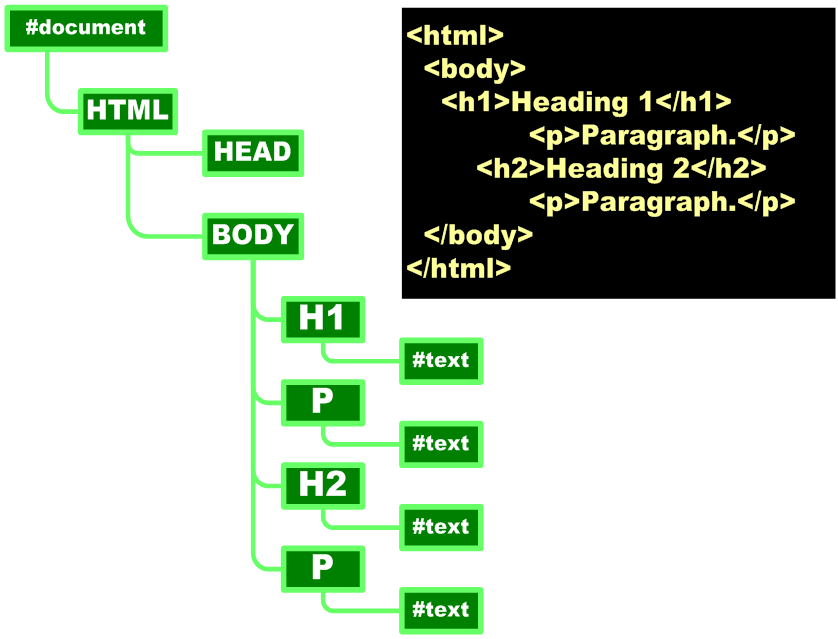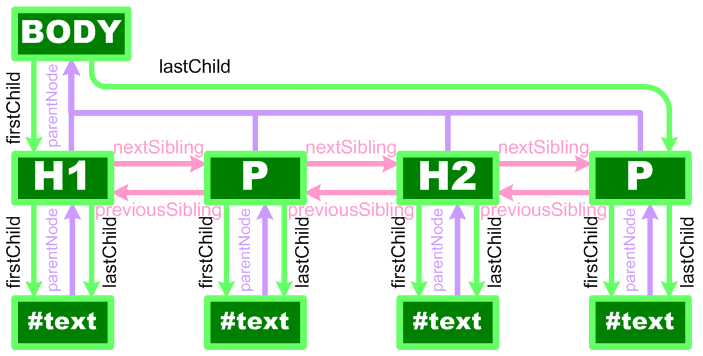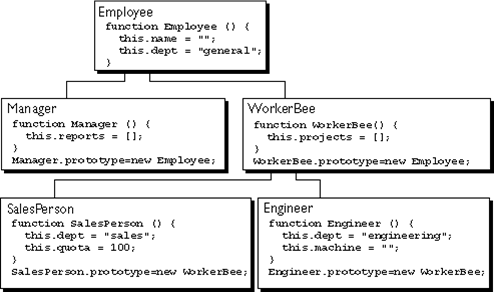|
|
'javascript'에 해당되는 글 32건
- 2010.05.11 XML Parser javascript class v1.0.0
- 2009.01.07 [펌]웹페이지 성능 향상
- 2008.02.20 JavaScript 강좌 references. 2
- 2008.02.20 JavaScript Event
- 2008.02.20 JavaScript DOM
- 2008.02.20 javascript object, class & inheritance, sigletons
- 2008.02.20 내장객체, BOM, DOM, 사용자 정의 객체
- 2008.02.20 objects, collections, linkage, invocations, this, typeof, closure, namespace, inheritance
- 2008.02.20 try-catch-throw, special text
- 2008.02.20 JavaScript Loops
ITWeb/개발일반 2010. 5. 11. 12:34
XMLHttpRequest 와 더불어 유용할 것 같아서 만들었습니다.
역시 다른데 코드는 제 스타일도 아니고 읽기도 힘들고 그래서.. 후다닥 만들었다는..
recursive call 을 하기는 하지만 나름 쉽게 작성했습니다.
코드 가지고 태클은 금지.. ㅎㅎ
/*
* XMLParser Control Module
*
* @package
* @path
* @filename xmlparser.js
* @author
* @date 2010/05/03
*
* Change History
* Date Engineer Type Description
* ---------- ------------------ --------- --------------------
* 2010/05/03 Henry Jeong create initialize
*/
/*
*
* XMLParser module object
*
*/
var JXmlParser = function() {
};
/*
*
* xml parser variables
*/
JXmlParser.prototype.vars = {
parser : null,
doc : null,
xmldata : null,
root : null,
xml : null
}
JXmlParser.prototype.init = function() {
if (window.DOMParser) {
JXmlParser.vars.parser = new DOMParser();
JXmlParser.vars.doc = JXmlParser.vars.parser.parseFromString(
JXmlParser.vars.xmldata, "text/xml");
JXmlParser.vars.root = JXmlParser.vars.doc.childNodes.item(0);
} else {
JXmlParser.vars.doc = new ActiveXObject("Microsoft.XMLDOM");
JXmlParser.vars.doc.async = "false";
JXmlParser.vars.doc.loadXML(JXmlParser.vars.xmldata);
JXmlParser.vars.root = JXmlParser.vars.doc.documentElement;
}
JXmlParser.vars.xml = new Object();
JXmlParser.vars.xml["length"] = JXmlParser.vars.root.childNodes.length;
}
JXmlParser.prototype.setXml2Array = function(pobj, node) {
var len = node.length;
if (window.DOMParser) {
for ( var i = 0; i < len; i++) {
if (node[i].nodeName.charAt(0) == "#") {
continue;
}
pobj[i] = new Object();
pobj[i][node[i].nodeName] = new Object();
pobj[i][node[i].nodeName]["value"] = node[i].textContent;
pobj[i][node[i].nodeName]["length"] = node[i].childNodes.length;
pobj[i][node[i].nodeName]["attributes"] = new Object();
if (node[i].attributes && node[i].attributes.length > 0) {
var loop = node[i].attributes.length;
for ( var j = 0; j < loop; j++) {
pobj[i][node[i].nodeName]["attributes"][node[i].attributes[j].nodeName] = node[i].attributes[j].nodeValue;
}
}
if (node[i].childNodes.length > 0) {
JXmlParser.setXml2Array(pobj[i][node[i].nodeName],
node[i].childNodes, node[i].childNodes.length);
}
}
} else {
for ( var i = 0; i < len; i++) {
if (node[i].nodeName.charAt(0) == "#") {
continue;
}
pobj[i] = new Object();
pobj[i][node[i].nodeName] = new Object();
pobj[i][node[i].nodeName]["value"] = node[i].text;
pobj[i][node[i].nodeName]["length"] = node[i].childNodes.length;
pobj[i][node[i].nodeName]["attributes"] = new Object();
if (node[i].attributes && node[i].attributes.length > 0) {
var loop = node[i].attributes.length;
for ( var j = 0; j < loop; j++) {
pobj[i][node[i].nodeName]["attributes"][node[i].attributes[j].nodeName] = node[i].attributes[j].text;
}
}
if (node[i].childNodes.length > 0) {
JXmlParser.setXml2Array(pobj[i][node[i].nodeName],
node[i].childNodes, node[i].childNodes.length);
}
}
}
}
JXmlParser = new JXmlParser();
/*
* <script type="text/javascript"> <!-- var objDivDebug =
* document.getElementById("divDebug");
*
function run() {
JXmlParser.vars.xmldata = "<?xml version='1.0' encoding='UTF-8'?><parser><totalcount type='number'><total>A</total><total>B</total></totalcount><items name='user' type='image'><item><seq>1</seq><id><![CDATA[jjeong****]]></id><originalImage><![CDATA[http://www.naver.com]]></originalImage><viewImage><![CDATA[http://www.naver.com]]></viewImage><thumbImage><![CDATA[http://www.naver.com]]></thumbImage><cheerMessage><![CDATA[한국어 테스트.]]></cheerMessage><register><![CDATA[20100503175621]]></register></item><item><seq>2</seq><id><![CDATA[layd****]]></id><originalImage><![CDATA[http://www.naver.com]]></originalImage><viewImage><![CDATA[http://www.naver.com]]></viewImage><thumbImage><![CDATA[http://www.naver.com]]></thumbImage><cheerMessage><![CDATA[CHEER MESSAGE]]></cheerMessage><register><![CDATA[20100503175621]]></register></item></items></parser>";
JXmlParser.init();
JXmlParser.setXml2Array(JXmlParser.vars.xml, JXmlParser.vars.root.childNodes);
objDivDebug.innerHTML += JXmlParser.vars.xml.length + "<br>";
objDivDebug.innerHTML += JXmlParser.vars.xml[0]["totalcount"].value + "<br>";
objDivDebug.innerHTML += JXmlParser.vars.xml[0]["totalcount"].attributes.type + "<br>";
objDivDebug.innerHTML += JXmlParser.vars.xml[0]["totalcount"].length + "<br>";
objDivDebug.innerHTML += JXmlParser.vars.xml[0]["totalcount"][0]["total"].value + "<br>";
objDivDebug.innerHTML += JXmlParser.vars.xml[0]["totalcount"][0]["total"].length + "<br>";
objDivDebug.innerHTML += JXmlParser.vars.xml[0]["totalcount"][1]["total"].value + "<br>";
objDivDebug.innerHTML += JXmlParser.vars.xml[0]["totalcount"][1]["total"].length + "<br>";
objDivDebug.innerHTML += JXmlParser.vars.xml[1]["items"].value + "<br>";
objDivDebug.innerHTML += JXmlParser.vars.xml[1]["items"].attributes.name + "<br>";
objDivDebug.innerHTML += JXmlParser.vars.xml[1]["items"].length + "<br>";
objDivDebug.innerHTML += JXmlParser.vars.xml[1]["items"][0]["item"] .length+ "<br>";
objDivDebug.innerHTML += JXmlParser.vars.xml[1]["items"][0]["item"][0]["seq"] .value+ "<br>";
objDivDebug.innerHTML += JXmlParser.vars.xml[1]["items"][0]["item"][1]["id"] .value+ "<br>";
}
* //--> </script>
*/
*/
Legacy 2009. 1. 7. 13:30
http://msdn.microsoft.com/ko-kr/magazine/dd188562.aspx
한번 가볍게 읽어 보세요. ^^*
1. 충분한 포트 열기
2. 다운로드하는 작은 파일 수를 제한
3. JavaScript 파일을 JavaScript 엔진 외부에서 로드
4. 연결 유지 사용
5. 네트워크 정체 현상 식별
6. 네트워크 MTU(최대 전송 단위)나 TCP 창 크기 늘리기
7. 서버 정체 현상 식별
8. 불필요한 왕복 확인
9. 만료 날짜 설정
10. 리디렉션에 대한 재고
11. 압축 사용
12. CSS 편집
더불어 비교해서 야후 닷컴에 근무하는 친구(제 친구는 아니구요.. ㅋ)가 쓴 책인데요.
http://stevesouders.com/examples/rules.php
http://video.yahoo.com/video/play?vid=1040890
ITWeb/개발일반 2008. 2. 20. 17:52
•
– yahoo.com YUI JavaScript ENG
ITWeb/개발일반 2008. 2. 20. 17:41
•-The browser has an event-driven, single-threaded, asynchronous programming model.
•-Events are targeted to particular nodes.
•-Events cause the invocation of event handler functions.
•-Events are normally used in combination with functions, and the function will not be executed before the event occurs!
|
Attribute |
The event occurs when... |
FF |
N |
IE |
|
onabort |
Loading of an image is interrupted |
1 |
3 |
4 |
|
onblur |
An element loses focus |
1 |
2 |
3 |
|
onchange |
The user changes the content of a field |
1 |
2 |
3 |
|
onclick |
Mouse clicks an object |
1 |
2 |
3 |
|
ondblclick |
Mouse double-clicks an object |
1 |
4 |
4 |
|
onerror |
An error occurs when loading a document or an image |
1 |
3 |
4 |
|
Onfocus |
An element gets focus |
1 |
2 |
3 |
|
onkeydown |
A keyboard key is pressed |
1 |
4 |
3 |
|
onkeypress |
A keyboard key is pressed or held down |
1 |
4 |
3 |
|
onkeyup |
A keyboard key is released |
1 |
4 |
3 |
|
onload |
A page or an image is finished loading |
1 |
2 |
3 |
|
onmousedown |
A mouse button is pressed |
1 |
4 |
4 |
|
onmousemove |
The mouse is moved |
1 |
6 |
3 |
|
onmouseout |
The mouse is moved off an element |
1 |
4 |
4 |
|
onmouseover |
The mouse is moved over an element |
1 |
2 |
3 |
|
onmouseup |
A mouse button is released |
1 |
4 |
4 |
|
onreset |
The reset button is clicked |
1 |
3 |
4 |
|
onresize |
A window or frame is resized |
1 |
4 |
4 |
|
onselect |
Text is selected |
1 |
2 |
3 |
|
onsubmit |
The submit button is clicked |
1 |
2 |
3 |
|
onunload |
The user exits the page |
1 |
2 |
3 |
•Event parameter
–-function getCBEvent (oNsEvent, PARAM1…) {
– // window.event : ff 에서 undefined
– var oEvent = oNsEvent || window.event;
– var oTarget = oEvent.target || oEvent.srcElement;
–}
–onclick=“getCBEvent(event, param1,..,parmaN);”
–-Microsoft does not send an event parameter, use the global event object instead
•
Event listener.
–Classic
§node["on" + type] = f;
–Microsoft
§node.attachEvent("on" + type, f);
–W3C
§node.addEventListener(type, f, false);
–Example :
§if ( DOMObject.addEventListener ) {
§ DOMObject.addEventListener("click", getMsg, false);
§} else if (DOMObject.attachEvent ) {
§ DOMObject.attachEvent("onclick", getMsg);
§} else if (DOMObject.onclick ) {
§ DOMObject.onclick = getMsg; // or
§ DOMObject["onclick“] = getMsg;
§}
•Event bubbling
–-Event bubbling is that the event is delivered in elements, and so on until the event is canceled.
•Cancel bubbling
–-function cancelBubbling ( oEvent ) {
– if ( oEvent.stopPropagation ) {
– oEvent.stopPropagation(); // FF
– } else {
– oEvent.cacnelBubble = true; // IE
– }
–}
ITWeb/개발일반 2008. 2. 20. 17:34
•Node
–-Retrieving nodes
§document.getElementById(id)
§document.getElementsByName(name)
§node.getElementsByTagName(tagName)
•Node
–Document tree structure

•Node
–-child, sibling, parent 
•Walk the DOM
–-Using recursion, follow the firstChild node, and then the nextSibling nodes.
§function walkTheDOM(node, func) {
§ func(node);
§ node = node.firstChild;
§ while (node) {
§ walkTheDOM(node, func);
§ node = node.nextSibling;
§ }
§}
•Style
–-node.className
–-node.style.stylename
–-node.currentStyle.stylename Only IE
–-document.defaultView(). getComputedStyle(node, ""). getPropertyValue(stylename);
§var oDiv = document.getElementById("div1");
§var nHeight = document.defaultView.getComputedStyle(oDiv, null).getPropertyValue("height");
Style names
CSS
•background-color
•border-radius
•font-size
•list-style-type
•word-spacing
•z-index
JavaScript
•backgroundColor
•borderRadius
•fontSize
•listStyleType
•wordSpacing
•zIndex
•Making elements
–-document.createElement(tagName)
§var hr = document.createElement("hr");
§document.body.appendChild(hr);
–-document.createTextNode(text)
§var txt = document.createTextNode("Hello!");
§document.body.appendChild(txt);
–-node.cloneNode(deep);
§cloneNode(true) clones the whole subtree rooted at the node
§cloneNode(false) only the node itself (and any attributes if it is an element) is cloned
–curr_node = root.firstChild;
–var new_node = curr_node.cloneNode(true);
–root.appendChild(new_node);
•Linking elements
–-node.appendChild(new)
–-node.insertBefore(new, sibling)
–-node.replaceChild(new, old)
–-old.parentNode.replaceChild(new, old)
•Removing elements
–-node.removeChild(old)
–-old.parentNode.removeChild(old)
•innerHTML
–-The W3C standard does not provide access to the HTML parser.
–-All A browsers implement Microsoft's innerHTML property.
ITWeb/개발일반 2008. 2. 20. 17:08

•Class & Inheritance
–-Prototypal Inheritance
|
var oldObject = {
firstMethod: function () { alert("first"); },
secondMethod: function () { alert("second"); }
};
var newObject = new Object(oldObject);
newObject.thirdMethod = function () { alert("third"); };
var myDoppelganger = new Object(newObject);
myDoppelganger.firstMethod(); // or
myDoppelganer[“firstMethod”](); |
var obj1 = function () {
this.title = "obj1";
}
var obj2 = function () {}
obj2.prototype = new obj1;
var obj2Class = new obj2();
alert(obj2Class.title);
obj1 = {
title:"obj1_"
}
obj2 = new Object(obj1);
alert(obj2.title); |
–-Method apply (Member variable)
§Function.apply(thisArg[, argArray])
–function Car(make, model, year) {
– this.make = make;
– this.model = model;
– this.year = year;
–}
–
–function RentalCar(carNo, make, model, year) {
– this.carNo = carNo;
– Car.apply(this, new Array(make, model, year));
–}
–
–myCar = new RentalCar(2134,"Ford","Mustang",1998);
–document.write("Your car is a " + myCar.year + " " + myCar.make + " " + myCar.model + ".");
–-Method apply (Member function)
§function TopClass (name, value) {
§ this.name = name;
§ this.value = value;
§ this.getAlertData = function () {
§ alert(this.name);
§ alert(this.value);
§ }
§}
§function SubClass (name, value, dept) {
§ this.dept = dept;
§ TopClass.apply(this, arguments);
§ this.getView = function () {
§ this.getAlertData();
§ }
§}
§//SubClass.prototype = new TopClass();
§var objSubClass = new SubClass("상위클래스","super","community");
§objSubClass.getView();
–-Method call
§Function.call(thisArg[, arg1[, arg2[, ...]]])
–function car(make, model, year) {
– this.make = make, this.model = model, this.year = year;
–}
–
–function hireCar(carNo, make, model, year) {
– this.carNo = carNo, car.call(this, make, model, year);
–}
•-Prototype
–Profiler = function () {..}
–Profiler.prototype.name = function () {..}
•-Namespace
–YAHOO = {};
•-new operator
–function object(o) {
– function F() {};
– F.prototype = o;
– return new F();
–}
–classA = new Profiler(); or classA = object(Profiler);
-Encapsulate (Parasitic)
|
YAHOO = {};
YAHOO.Trivia = function () {
var privateVar = "showPoser";
function privateNextPoser() {
alert("getNextPoser");
}
return {
getNextPoser: function (cat, diff) {
privateNextPoser();
},
showPoser: function () {
alert(privateVar);
}
};
} ();
function getFunc() {
var oObj = YAHOO.Trivia;
oObj.getNextPoser();
} |
YAHOO = {};
YAHOO.Trivia = function () {
var privateVar = "showPoser";
function privateNextPoser() {
alert("getNextPoser");
}
return {
getNextPoser: function (cat, diff) {
privateNextPoser();
},
showPoser: function () {
alert(privateVar);
}
};
};
function getFunc() {
var oObj = new YAHOO.Trivia();
oObj.getNextPoser();
} |
-Singletons
var singleton = function () {
var privateVariable;
function privateFunction(x) {
...privateVariable...
}
return {
firstMethod: function (a, b) {
...privateVariable...
},
secondMethod: function (c) {
...privateFunction()...
}
};
}();
ITWeb/개발일반 2008. 2. 20. 16:47
•자바스크립트 내장 객체
–-Number
–-String
–-Date
–-Array
–-Boolean
–-Math
–-RegExp
•브라우저 객체 모델(BOM) 객체
-window
§document
–forms
–cookie
–links/anchors
–images
§navigator
§location
§frames
§screen
§history
The Document Object Model (DOM) is an API for HTML and XML documents.
-Core DOM
§defines a standard set of objects for any structured document
-XML DOM
§defines a standard set of objects for XML documents
-HTML DOM
§defines a standard set of objects for HTML documents
•DOM 객체
–DOM Level 1,2,3
§DOM1 : 1997~1998
§DOM2 : 2000~2003
§DOM3 : 2004
|
Specification |
|
|
|
DOM Level 1 |
|
DOM Level 1 (SE) |
|
|
|
DOM Level 2 Core |
|
DOM Level 2 HTML |
|
DOM Level 2 Views |
|
DOM Level 2 Style |
|
DOM Level 2 Events |
|
DOM Level 2 Traversal-Range |
|
|
|
DOM Level 3 Requirements |
|
DOM Level 3 Core |
|
DOM Level 3 Events |
|
DOM Level 3 Load and Save |
|
DOM Level 3 Validation |
|
DOM Level 3 XPath |
|
DOM Level 3 Views |
•개발자가 만든 사용자 정의 객체
–-JavaScript objects 와 prototype.
§YAHOO.util.Connect = {
– _msxml_progid:[],
– _http_headers:{},
– _has_http_headers:false,
– setProgId:function(){…}
–}
§Profiler = function () {
– var getProfilers; // private
– this.getProfiler = function () {…} // public
–}
§String.prototype.trim = functoin () {…}
§Profiler = new Object();
–Profiler.title = “YAHOO”;
–Profiler.author = “Jerry”;
ITWeb/개발일반 2008. 2. 20. 16:36
Objects
–-Everything else is objects
–-Objects can contain data and methods
–-Objects can inherit from other objects.
•Collections
–-An object is an unordered collection of name/value pairs
–-Names are strings
–-Values are any type, including other objects
–-Good for representing records and trees
–-Every object is a little database
§var FUNC = function () {
§ var objDiv = document.createElement("div");
§ this.getCollection = function ( collection ) {
§ for ( i in collection ) {
§ objDiv.innerHTML += "name : " + i + "<br>value : " + collection[i] + "<br>";
§ }
§ document.body.appendChild(objDiv);
§ }
§}
§FUNC = new FUNC();
•Object Literals
–-Object literals are wrapped in { }
–-Names can be names or strings
–-Values can be expressions
–-: separates names and values
–-, separates pairs
–-Object literals can be used anywhere a value can appear
•Linkage
–-Objects can be created with a secret link to another object.
–-If an attempt to access a name fails, the secret linked object will be used.
–-The secret link is not used when storing. New members are only added to the primary object.
–-The object(o) function makes a new empty object with a link to object o.
function object(o) {
function F() {};
F.prototype = o;
return new F();
}
•JavaScript Invocations
–-If a function is called with too many arguments, the extra arguments are ignored.
–-If a function is called with too few arguments, the missing values will be undefined.
–-There is no implicit type checking on the arguments.
–-There are four ways to call a function:
§Function form
–functionObject(arguments)
§Method form
–thisObject.methodName(arguments)
–thisObject["methodName"](arguments)
§Constructor form
–new functionObject(arguments)
§Apply form
–functionObject.apply(thisObject, [arguments])
•JavaScript this
–-this is an extra parameter. Its value depends on the calling form.
–-this gives methods access to their objects.
–-this is bound at invocation time.
|
Invocation form |
this |
|
function |
the global object |
|
method |
the object |
|
constructor |
the new object |
JavaScript typeof
|
type |
typeof |
|
object |
'object' |
|
function |
'function' |
|
array |
'object' |
|
number |
'number' |
|
string |
'string' |
|
boolean |
'boolean' |
|
null |
'object' |
|
undefined |
'undefined' |
•Closure
–-The scope that an inner function enjoys continues even after the parent functions have returned.
–-This is called closure.
§function getClosure () {
§ var num = 1;
§ var getAlert = function() { num++; alert(num); }
§ num++;
§ return getAlert();
§}
§<input type="button" value="getClosure" onclick="getClosure();">
–function fade(id) {
– var dom = document.getElementById(id),
– level = 1;
– function step () {
– var h = level.toString(16);
– dom.style.backgroundColor =
– '#FFFF' + h + h;
– if (level < 15) {
– level += 1;
– setTimeout(step, 100);
– }
– }
– setTimeout(step, 100);
–}
•JavaScript Namespace
–-Every object is a separate namespace.
–-Use an object to organize your variables and functions.
§var YAHOO = {};
§YAHOO.url = "http://www.yahoo.com";
§YAHOO.getUrl = function () {
§ alert(this.url);
§ return this.url;
§}
§<input type="button" value="YAHOO.getUrl();" onclick="YAHOO.getUrl();">
•Inheritance
–-Linkage provides simple inheritance.
–-Prototypal inheritance.
–-Parasitic inheritance.
–-Method apply(), call().
ITWeb/개발일반 2008. 2. 20. 16:30
•Events
•Try…Catch
–try {
–} catch (err) {
–// err.name, err.message
–// err.number, err.description
–}
•Throw
–try {
– throw "error1";
–} catch (err) {
– if ( err == "error1" ) {
– alert("error1 발생");
– }
–}
JavaScript Special Text
|
Code |
Outputs |
|
\' |
single quote |
|
\" |
double quote |
|
\& |
ampersand |
|
\\ |
backslash |
|
\n |
new line |
|
\r |
carriage return |
|
\t |
tab |
|
\b |
backspace |
|
\f |
form feed |
ITWeb/개발일반 2008. 2. 20. 16:28
•JavaScript Loops
–for
§for (var=startvalue;var<=endvalue;var=var+increment) {
§ code to be executed
§}
§for (variable in object) {
§ code to be executed
§}
–while
§while (var<=endvalue) {
§ code to be executed
§}
§do {
§ code to be executed
§} while (var<=endvalue);
–break / continue (break label / continue label)
§for (i=0;i<=10;i++) {
§ if (i==3) {
§ break;
§ }
§ document.write("The number is " + I + "<br />");
§}
§forLable : for (i=0;i<=10;i++) {
§ if (i==3) {
§ continue forLable;
§ }
§ document.write("The number is " + I + "<br />");
§}
–
–with
§with ( document ) { // 반복 시킬 객체
§ write(“생략된 객체 반복1<br>”); // 구문
§ write(“생략된 객체 반복2<br>”); // 구문
§}
|




